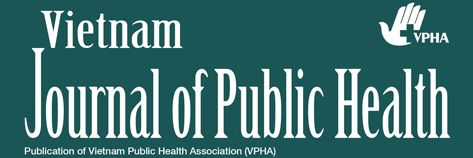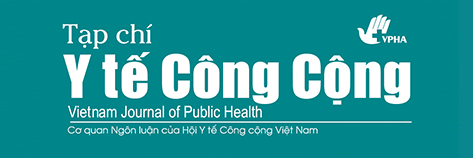Đánh giá dự án cung cấp thông tin về sức khỏe sinh sản m-Health cho nữ lao động di cư (Evaluation report on m-Health information for female migrant workers)
Tóm tắt
Dự án can thiệp áp dụng các hình thức cung cấp thông tin và dịch vụ chăm sóc sức khỏe sinh sản (CSSKSS) cho nữ lao động di cư thông qua tin nhắn, bản đồ, tư vấn miễn phí qua điện thoại và trang web gọi tắt là m-Health được triển khai trong 12 tháng. Sau khi kết thúc can thiệp, đánh giá tiền thực nghiệm được thực hiện nhằm: Mô tả chương trình can thiệp; và Đánh giá tác động của can thiệp m-Health đến nữ lao động.
Kết quả cho thấy hầu hết nữ lao động đã biết và sử dụng các dịch vụ dự án. Các dịch vụ này được đánh giá là rất cần thiết bản thân và nữ di cư nói chung. Các dịch vụ hữu ích với nội dung cụ thể, dễ hiểu và đảm bảo bí mất do đó những người chưa kết hôn có thể hỏi những vấn đề “nhạy cảm” như tình dục an toàn, tránh thai. Kiến thức và thực hành về CSSKSS của đối tượng đã tăng lên rõ rệt.Dự án khuyến nghị nên cân nhắc sử dụng mạng điện thoại để cung cấp các thông tin kịp thời, đặc biệt phù hợp cho các vấn đề khẩn cấp như dịch bệnh hay thảm họa. Việc ứng dụng công nghệ cũng cần cân nhắc đến bối cảnh văn hóa xã hội và các vấn đề rào cản ngôn ngữ.
English abstract:
A 12-month m-Health project was conducted to provide a social network and health information services to improve access to reproductive health care services for female migrant workers via low-cost mobile phone messages, use of maps, and free counseling via a hotline and website. After 1 year of project implementation, this evaluation was carried out to describe the m-Health interventions, to measure the impact of those intervention on female migrant workers by tracking their changes in knowledge and practices related to sexual and reproductive health; and to explore the influence of m-Health interventions on other indirect target populations. This evaluation employed a pre-experimental design with two times of information collection – pre- and post-intervention.
Results of data analysis show that all project’s services were known and used by migrants including registered and new clients. Most participants found that these services were useful and important for them and for female migrants in general. Project’s services were useful because of clear, easy-to-understand and confidential contents so unmarried females can ask questions about “sensitive issues” such as safe sex, using contraceptives, STD prevention and so on. The report also finds a significant improvement in knowledge and practices towards reproductive health among female migrants. Future interventions should consider using mobile network to provide timely information, especially in case of emergency issues like disease outbreaks or disasters; and it is needed to have a good understanding of cultural context and strategies to overcome language and literacy barriers.
Từ khóa
Toàn văn:
PDF (English)##submission.citations##
Tài liệu tiếng Việt
Liên hợp quốc tại Việt Nam, Báo cáo về thanh thiếu niên 2012-2016. 2013.
Marie Stopes International Việt Nam, Thông cáo báo chí: Ngày hội sức khỏe cho công nhân nhà máy, truy cập ngày 10 tháng 8 năm 2015 tại: http://eeas.europa.eu/delegations/vietnam/documents/press_corner/2014/20140307_healthfair_vi.pdf
Nguyễn Thị Lan Liên, Thực trạng sử dụng dịch vụ khám chữ nhiễm khuẩn đường sinh sản ở phụ nữ 18-49, lao động trong khu công nghiệp tại phường Thạch Bàn, Long Biên, Hà Nội, 2011
Tổng cục dân số và kế hoạch hóa gia đình, Điều tra quốc gia về vị thành niên, thanh niên Việt Nam 2. 2009.
Tổng cục Dân số - Kế hoạch hóa gia đình, Báo cáo kết quả khảo sát thực trạng cung cấp dịch vụ sức khỏe sinh sản và phương tiện tránh thai cho công nhân một số khu công nghiệp, 2014
UNFPA, Báo cáo tổng quan: Ảnh hưởng của các yếu tố văn hóa – xã hội đến sức khỏe sinh sản của lao động nữ di cư ở Việt Nam, 2011
UNFPA, Sức khỏe sinh sản cho Lao động nhập cư, Nghiên cứu định tính tại Quy Nhơn, Bình Định, 2008
Tài liệu tiếng Anh
Herproject, B., Female Factory Workers’ Health Needs Assessment: Vietnam. 2010.
Herproject, B., Women’s General & Reproductive Health in Global Supply Chains. 2006.
Lim, M.S., et al., SMS STI: a review of the uses of mobile phone text messaging in sexual health. Int J STD AIDS, 2008. 19(5): p. 287-90.
Levine, D., et al., SEXINFO: a sexual health text messaging service for SanFrancisco youth. Am J Public Health, 2008. 98(3): p. 393-5.
Madeni, F., S. Horiuchi, and M. Iida, Evaluation of a reproductive health awareness program for adolescence in urban Tanzania--a quasi-experimental pre-test post-test research. Reprod Health, 2011. 8: p. 21.
Parwej, S., et al., Reproductive health education intervention trial. Indian J Pediatr, 2005. 72(4): p. 287-91.
PATH, ed. Highlights of 25 Years of Youth Sexual and Reproductive Health Programming. 2003.
Speizer, I.S., R.J. Magnani, and C.E. Colvin, The effectiveness of adolescent reproductive health interventions in developing countries: a review of the evidence. J Adolesc Health, 2003. 33(5): p. 324-48.
Qian, X., et al., Promoting contraceptive use among unmarried female migrants in one factory in Shanghai: a pilot workplace intervention. BMC Health Serv Res, 2007. 7: p. 77.
UNAID, F., Mobile Technology for Health, 2013.
WHO, Health of Migrants - The way forward, in Report of a global consultation, 2010.
Ybarra, M.L., et al., Internet use among Ugandan adolescents: implications for HIV intervention. PLoS Med, 2006. 3(11): p. e433
Zhu, C., et al., Impact of an Educational Programme on Reproductive Health Among Young Migrant Female Workers in Shenzhen, China: an Intervention Study. Int J Behav Med, 2014.



